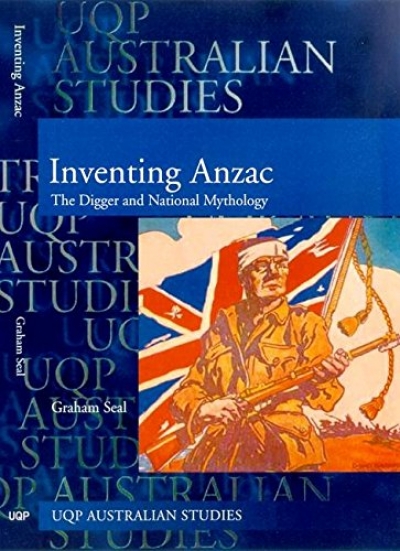Anzacs
Inventing ANZAC: The digger and national mythology by Graham Seal
‘Select arresting quotes. Let your characters speak if the evidence is there,’ A.J.P. Taylor told his Oxford history students. In his own best-selling The First World War: An Illustrated History, struggling to convey something of the enormity of the disaster of the third battle of Ypres, Taylor wrote: ‘On 8 November Haig’s Chief-of-Staff visited the fighting zone for the first time. As his car struggled through the mud, he burst into tears and cried: “Good God, did we really send men to fight in that?” His companion replied: “It’s worse further up.”’
... (read more)ABR goes to London
Hot on the heels of our inaugural ABR Forum in Canberra on March 28, when a capacity audience attended the session on life-writing at the National Library, ABR will host its first event in London on Tuesday, June 8. Peter Rose and Morag Fraser will present an evening of readings and ideas, with special appearances by Clive James and Peter Porter. We’re delighted to be able to present this special event in association with the Menzies Centre for Australian Studies, Kings College London. The event will run from 6 to 8 p.m. Bookings are essential: please direct them to This email address is being protected from spambots. You need JavaScript enabled to view it.. ABR has many subscribers and supporters in the UK; we look forward to meeting them – and to reaching new ones.
... (read more)Soldier Boy: The True Story of Jim Martin the Youngest Anzac by Anthony Hill
Anthony Hill begins his biography of Jim Martin by describing Martin’s death. Beginning the story of a person’s life by going straight to the end is unusual but wholly appropriate in this case because Jim Martin’s fame lies solely in the fact that his death at the age of fourteen, at Gallipoli, makes him the youngest known Australian soldier ever to die in a war.
... (read more)What Price Surrender?: A story of the will to survive by Desmond Jackson
Mr Jackson’s book narrates his experience and that of a friend as prisoners of the Japanese in Thailand during World War II. It is neither a good nor memorable book, but it does raise, however unintentionally, significant issues. In a nation still bereft of a civil religion, that amalgam of myths and tales of heroes which defines a country’s sense of self and values, the experiences described by Mr Jackson should be honoured.
... (read more)In a response to Peter Weir’s film Gallipoli published in Quadrant in 1982, Gerard Henderson observed that ‘recounting the story of the Anzacs has become something of a growth industry’. Five years on, the Gallipoli industry shows no sign of a downturn. The salvaging and publication of war diaries, letters and manuscripts that had long mouldered in museums, libraries and attics, the spate of ‘epic’ teledramas and ersatz war fiction (like Jack Bennett’s spin-off from the aforesaid movie), new historical studies and the resurrection of old ones such as C. E. W. Bean’s Official History and, at the other end of the scale, John Laffin’s Digger: The Story of the Australian Soldier (its subtitle magically changed to ‘The Legend of the Australian Soldier’), all attest to the enduring appeal of Australia’s military exploits to writers and filmmakers and to the subject’s ability to tap a popular audience.
... (read more)The White Mouse by Nancy Wake & The Diggers of Colditz by Jack Champ and Colin Burgess
Resistance has three components – intelligence, sabotage, and aiding service personnel to evade capture. or to escape. Nancy Wake, in occupied France, was active in all three; and Jack Champ escaped. A member of the sixth division, he was captured in Greece, later taken to notorious Colditz.
... (read more)





